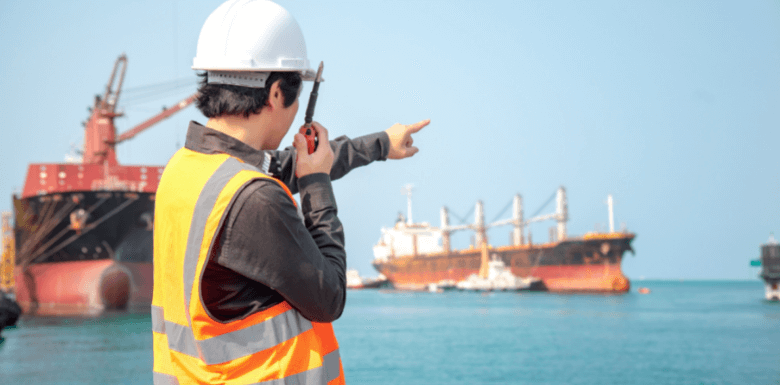
If you were hurt in a maritime accident, you likely hope your employer will take care of you in your time of need after your dedicated service to their company. You also may expect they will allow you to keep your job after your medical care is concluded and you are able to return to work. While some employers may do this, many turn their backs on employees when a serious accident occurs and they need help the most.
If you are a seaman or offshore worker and you are injured on the job, you are probably entitled to a variety of financial and medical benefits. There are established processes that have been in place for decades to ensure offshore workers reporting injuries are safe from retaliation. Despite this, many injured seamen worry about getting a bad reputation from their employers or within the offshore transportation industry if they bring a legal claim for damages.
How the Jones Act and Other Laws Protect Maritime Workers
Onshore employers often provide workplace insurance programs to supply benefits and partial wages when workers are injured on the job. These policies typically don’t apply to maritime workers, so special laws have been put in place to address the needs of seamen and dock employees. The Jones Act and the Longshore and Harbor Workers’ Compensation Act (LHWCA) are two of the most frequently used laws in maritime injury claims.
The Jones Act, originally named the Merchant Marine Act of 1920, specifically applies to those who spend at least 30% of their working time on board vessels engaged in transporting people or cargo on U.S. navigable waters. The LHWCA applies to those working in shipyards, docks, piers, and other structures on navigable waters.
Maritime workers cannot receive standard workers’ compensation benefits, but under these laws, they often qualify for something similar but unique to the offshore setting, which is called maintenance and cure. Maintenance refers to a reasonable daily benefit to cover food, lodging, and transport to and from medical facilities for treatment. Cure pays for the medical bills and recovery costs the claimant has as a result of their injury.
Retaliation or “Blacklisting” Is Illegal

Can I Lose My Job for Filing a Jones Act Claim?
Both the Jones Act and the LHWCA prohibit employers from blacklisting and retaliating against maritime workers who file a claim and/or are approved for benefits under their respective Acts. Even though this type of retaliation is illegal, some companies will still take actions that violate these laws. Furthermore, courts have consistently held that blacklisting or blackballing offshore workers is illegal. Beyond that, if a former employer is asked for a reference, they are not legally allowed to discuss whether or not you’ve filed a claim against them for injury damages (or any other reason) as part of this process.
In the event an offshore employer retaliates against a seaman, the maritime accident lawyers of The Krist Law Firm will gather evidence supporting your claims of retaliation, and pursue legal claims against the offending employer that could result in recoverable damages including back pay, future pay, damages for harm to employee reputation, mental anguish, and even punitive damages. Don’t let the fear of being blacklisted prevent you from filing a maritime injury claim. It is your legal right to seek compensation for the damages resulting from an offshore accident that was someone else’s fault.
Types of Maritime Accidents
The maritime environment is a high-risk one, and there are inherent dangers. Claims can be made for any number of accidents. While the causes and types of maritime accidents are seemingly unlimited, most are caused by the negligence of at least one party, but many times more than one party is involved.
Some of the more common offshore injury accidents we have investigated and/or handled include:
- Crane Accidents
- Slip and Fall Accidents
- Inclement Weather Conditions
- Fire, Explosion, Electrocution, and Burn Incidents
- Vessel Collisions
- Falling Objects
- Shipyard Accidents
- Cargo Hauling Accidents
- Falls From Heights
- Heavy Machinery or Equipment Accidents
- Falling Overboard
- Enclosed Space Accidents
- Mooring Accidents
- Piracy Attacks
- Chemical Exposure
- Repetitive Stress Injuries
- Lifting Injuries
- Asbestos-Related Issues
- Defective Products
Workers can suffer minor injuries that worsen without appropriate medical care or experience catastrophic harm. Every moment at sea can be dangerous if the ship owner has failed to provide a seaworthy vessel, or inadequate training means your crewmembers don’t know how to handle unexpected changes on board. Whether your injury is sudden or develops over time, such as back strain or carpal tunnel syndrome, you deserve compensation under the law without fear of losing your job or being shut out of future employment.
It’s critical that you make a record of what happened and ask others to provide statements about how you were injured. By collecting evidence early on and reporting your accident right away, you can strengthen your claim for maintenance and cure benefits with the help of your maritime injury attorney.
Potential Compensation You Could Receive from Your Maritime Injury Claim
No matter what type of maritime accident you’ve been involved in, you may be entitled to significant financial compensation that can help pay for your medical bills, lost wages, and more. This is critical if you are no longer able to work as a result of your injuries. If your accident resulted from your employer’s negligence, you should seek the legal representation of an experienced trial attorney to hold them responsible.
Filing a Jones Act claim allows you to seek payment for your daily costs of food and lodging, along with transportation costs to and from doctors and treatment centers. This is the maintenance you need to recover and return to the job. You also can file for cure, which covers reasonable and necessary medical expenses such as:
- Doctor bills
- Emergency room or ICU care
- Transportation for special treatment or rehabilitation
- Physical therapy
- Prescription medications
- Crutches, canes, or other medical devices
Jones Act claims should repay your cure costs until you have reached maximum medical improvement (MMI). However, insurance companies may push back and try to decrease or stop your benefits before you have fully recovered. This is another potential tactic employers could use to intimidate you into not filing your claim, along with blacklisting. When you work with an experienced and tenacious maritime injury lawyer from The Krist Law Firm, we will do our best to prevent these from happening.
Additional Benefits Under the Jones Act and LHWCA
If you aren’t able to return to your previous job due to the permanent effects of your injuries, you are entitled to vocational rehabilitation assistance. This includes an evaluation to determine what work you can perform, counseling to improve your skills, and training for new employment.
You are also entitled to temporary and permanent disability payments for your lost income. Temporary payments will replace your wages while you heal, but permanent disability payments can last the rest of your life if you are permanently unable to work at any job after your recovery.
Wrongful Death Compensation for Your Family

Claimants must demonstrate negligence by the employer, ship owner, or ship operator for a valid claim. Jones Act benefits are only available if a loved one died within U.S. navigable waters, which includes three nautical miles offshore. If they died in international waters, survivors could file under the Death on the High Seas Act (DOHSA).
DOHSA applies to those who died on a vessel beyond the three-mile limit or on a commercial airline beyond the 12-mile international water limit. These cases are brought in U.S. federal court and can be filed against foreign agents as long as the claimants can demonstrate how the defendant’s negligence caused the death.
Why You Should Choose The Krist Law Firm for Your Maritime Injury Case
Houston personal injury and maritime lawyer Scott Krist has been recognized by many of the most distinguished legal organizations for his skills as a trial lawyer and record-setting recoveries, including The Best Lawyers in America©, Law Dragon 500, The Top 100 Trial Lawyers in Texas, Super Lawyers, and more. He has obtained record-setting and award-winning results for his clients across his entire career, including in cases involving personal injury, maritime accidents, premises liability, and commercial trucking accidents, among other cases.
For over four decades, our team has provided strong legal advocacy and dedicated client service to the clients who put their trust in our firm. We boast a powerful team that includes seasoned personal injury litigators, experienced support professionals, and a network of experts for collaboration. We conduct detailed investigations and gather all relevant evidence to construct a convincing and strong case for your compensation.
You don’t have to worry about the cost because we offer free initial case reviews and a contingency fee payment structure. We do not take any attorney’s fees until and unless we secure a settlement or win a trial verdict for you. We provide consistent and clear communication throughout your case so you always know what to expect and can make informed decisions about what’s right for you.
Put Your Trust in the Texas Maritime Lawyers at The Krist Law Firm
Not just any lawyer can adeptly handle an offshore injury case that involves a special and unique subset of both state and federal laws, but The Krist Law Firm can and does successfully resolve these cases on a regular basis. We understand the nuances of maritime law, interpreting and applying it skillfully to the specific circumstances of your claim. We are committed to making every effort to obtain the maximum compensation and benefits available for your full recovery.
Instead of taking chances with an employer who may take illegal action to ruin your reputation in the industry, arrange a free consultation with our team to learn more about what we can do to help. You deserve superior legal representation to protect your rights, your freedom to work, and your future as a seaman or shipyard worker.
Most maritime law injury claims require a lawsuit to secure the compensation victims deserve. Contact us to schedule your free consultation today.

